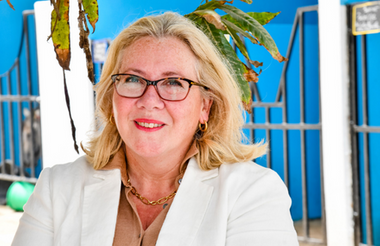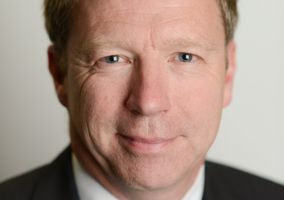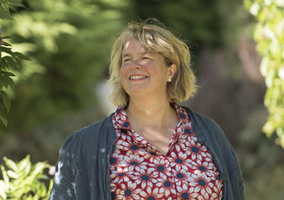Before working in the charity sector, Linda Edwards started her career as a headhunter, before deciding “it wasn't really making me bounce out of bed anymore”.
She has now worked in the sector for around 20 years, most recently at the Donkey Sanctuary before joining the Society for the Protection of Animals Abroad (SPANA) as chief executive.
“Animals have always been my absolute passion, but to be able to combine working with animals and understanding the needs of particularly more vulnerable communities was an opportunity I couldn't turn down,” she explains.
Edwards joined SPANA in the height of the coronavirus pandemic, though says she was fortunate as she had met some colleagues in previous roles.
“Not everybody was a stranger to me, which was very nice. I knew the organisation pretty well, so it didn't feel perhaps quite as alien as it could have done.
“Thank goodness for technology. Over the years I’ve worked in places where my colleagues have not always been in the same location. So, I think I’m pretty used to it.
“I think for international organisations Covid actually created a nicer platform, because I can interact as much with a colleague in Morocco or Mauritania as I do with a colleague based in the UK.
“On that level, actually, we’ve created a more equal platform where we engage more fluidly than we would have perhaps done before – it breaks down some of those barriers that geography tends to create.”
‘This year is going to be particularly hard’
In 2021, SPANA’s income was £9.2m, but last year it was down by “about 5-10%”, says Edwards.
SPANA will be looking to increase its income this year “and that’s not easy in this current climate” but Edwards says “we’ve been relatively fortunate so far”.
She is braced for a tough year financially, with the charity’s expenditure also increasing.
“For us, it’s not so much that we’ve seen a massive drop in income at the moment, but we know this year is going to be particularly hard. What we’ve seen is that costs have gone up massively.
“The impact on our budget is not so much about what we’ve been bringing in, it's now actually the cost of delivering services and treatments and getting access to the right medications etc, has gone up hugely. Just standing still it’s costing us – half a million more just to do exactly the same.
“We’re keeping it as lean as possible, making sure that we’ve got efficiencies, but equally, we still have critical work to do.”
‘We’re hoping supporters will be able to weather this journey’
SPANA gets almost all of its income from donations and legacies.
“We have an incredible supporter base who are wonderfully generous and trust us to deliver effective programming to support working animals,” says Edwards.
Edwards says the British public are “extremely generous for charities in general, but for animals I think we do have an incredible soft spot” which SPANA “really relishes and thanks – we couldn't do it without people supporting us”.
“It's our centenary year, we’ve relied very heavily on our supporters, we’re hoping that they will be able to weather this journey and continue to support us,” she says.
SPANA receives a lot of legacies, similar to many animal charities, but Edwards says the charity also has a lot of individual givers, supporters and major donors.
“We’re obviously looking to build and diversify our income, as most charities are trying to do, in an environment which is at the moment quite worrying.”
‘A united voice is much more powerful’
SPANA has campaigned recently alongside other organisations against the donkey skin trade, “which has been a major issue”, but it plans to be vocal on other issues in the near future.
“SPANA has been actively engaged in that campaign and continues to be. It’s extremely worrying the number of donkeys that are disappearing, and it’s a species that many communities and populations rely on in order to do all the work that they do.”
“I think a united voice is always much, much more powerful,” says Edwards.
Going forwards, SPANA will looking at climate or environmental disasters, she says, as often working animals are impacted.
“I would imagine that the reality is we’re going to see far more climatic issues, there'll be more droughts, more floods. Obviously, we’ve just seen recently with the horrendous earthquake […] working animals often end up being the invisible workers during a crisis.
“If you’re looking at some of the things that have happened, it’s donkeys and mules and horses that are tracking across landscapes to make sure medicines get to people.
“You need to be able to demonstrate the connections. Environmental damage is having a direct impact on working animals. So, when we're looking at things, we know it's interconnected.
Edwards says that she will not “invest oodles of time” on issues unrelated to animals. But she says: “If there’s a direct connection, which in many cases there are, then we need to be raising the issue and connecting with organisations who are experts in that field – so that we're not a lone voice.
“As an organisation, we bring a lot of expertise to what we do. However, to presume that we know best on everything would I think be rather arrogant.”
‘New strategy after 100 years’
The charity was founded by British woman Kate Hosali after she and her daughter travelled around north Africa in 1923 and were struck by the sight of donkeys, mules and camels malnourished and wounded by poorly fitting harnesses.
One hundred years later, the charity has published a strategy looking ahead to the next five years.
“Obviously we're not new to what we do, but we are working in a world that is changing, none of us thought Covid was going to happen, and here we are,” says Edwards.
“We’re celebrating our centenary, so it's our 100th birthday. For me it’s a huge privilege to be leading the organisation through this incredible year, and we also launched earlier this year our new five year strategy, which takes us through to 2027 – the title of which is transforming the lives of working animals.”
This new strategy is focused on three key areas. One is about improving the quality of life for working animals across the globe.
“We want to scale to the next level, really building on our foundations by having a much greater, more strategic reach.”
“We’re wanting to increase scale by greater buy-in, working with more strategic partners, and focusing a lot more on not just treatment, but also prevention.”
Edwards would like to see some of the strategic partnerships that they are visioning at the moment really coming to fruition, “so some of those other partners who we would not traditionally have worked with seeing the value of the work”.
She would like to demonstrate that working animals are strategic to what others are delivering and “I think we can get to a stage where that is adopted, and we can provide the technical expertise to ensure that there's a greater impact”.
Edwards adds: “We are also focused on ensuring that the contribution of working animals and what they do for communities and people in the world is actually recognised and importantly valued. And we want to ensure those invisible workers start to become truly visible.”
The third goal is focused on that working animals thrive and continue to grow sustainably as part of a nexus of animals, humans and the environment.
“The reality if nothing else is that over the last few years, we’ve seen that actually, we're so interconnected – you can't separate animals from humans from the environment. We need to protect our planet, protect the animals and ensure that, as humans, we take greater responsibility.”
Related Articles












